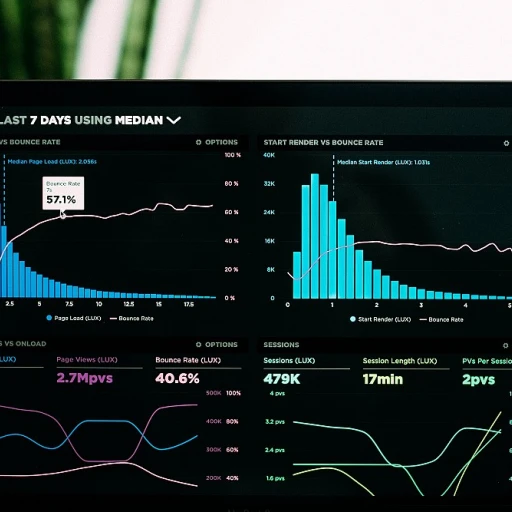
Decoding the Legal Framework for AI in SEO
Unraveling the Complexity of Legal Regulations for AI & SEO
As search engine optimization (SEO) continues to evolve with advancements in artificial intelligence (AI), it has become paramount to understand the intricate tapestry of legal considerations that bind this symbiotic relationship. The legal framework governing the use of AI in SEO is complex and multifaceted, encompassing a variety of legislative, regulatory, and ethical issues.
At the heart of this complexity is the inherent difficulty in applying traditional laws to a technology that is continually learning and altering its behavior—often in ways unforeseen by programmers and without explicit human intervention. This characteristic of AI raises critical questions about accountability and the enforcement of legal standards in an SEO context.
Navigating the Intersections of AI Innovation and Legal Constraints
In marketing, AI’s role is increasingly pivotal in analyzing large datasets to optimize keywords, predict user behavior, and personalize content creation for better search engine rankings. However, legal oversight remains in its nascency. Key legislations such as the General Data Protection Regulation (GDPR) in Europe have started to address the protection of personal data in the face of AI's capabilities. There are references to 'automated decision making,' which includes profiling, offering a lens into how SEO strategies must evolve to remain compliant with privacy standards.
Intellectual property laws also come into play when AI systems generate content that could potentially infringe on existing copyrights or trademarks, not to mention the complexities introduced by AI that 'learns' from copyrighted material. Additionally, underlying algorithms that propel SEO strategies are fiercely guarded for competitive advantages, yet they may soon require disclosure for regulatory compliance, stirring the debate about trade secrets versus consumer rights.
Understanding the Accountability Conundrum in SEO Practices
The question of ‘who is responsible when something goes wrong?’ reaches new heights with AI. In the realm of SEO, where rankings can dramatically affect a business's bottom line, the stakes are high. Algorithmic transparency and the ethical deployment of AI tools have become hot topics, with implications for both future legislation and current self-regulatory practices within the industry. When algorithms lead to the dissemination of false or misleading information, or when personalization encroaches on privacy rights, the legal ramifications are still taking shape.
Statistical evidence suggests that while many embrace AI for its efficiency and capabilities, there is a growing call for clearer guidelines and frameworks to ensure that AI operates within defined ethical and legal boundaries—as will be discussed in the context of AI transparency and ethical foundations.
Laying the Groundwork for Future Legal Developments
Industry leaders, legal experts, and policymakers are increasingly joining forces to map the contours of AI’s legal landscape in SEO. The outcome of these collaborative efforts will undoubtedly shape the strategic planning for search engine optimization techniques, as businesses and SEO professionals must anticipate and react to the evolving regulatory environment.
As keyword optimization, content creation, and user experience enhancement are increasingly influenced by AI, the urgency for legal frameworks that keep pace with technological advancements becomes clear. Integrating AI into SEO requires foresight and a proactive approach to legal compliance—an imperative that not only protects businesses but also the integrity of the digital market as a whole.
Ethical Foundations in AI-Enhanced SEO
Ethical Dimensions of Machine Learning in Search Engine Optimization
In an era where artificial intelligence (AI) is beginning to dominate the digital marketing landscape, ethical considerations have become paramount. The integrity of AI-driven search engine optimization (SEO) hinges not just on the technology itself, but on the moral fabric that underlies its deployment. By weaving together an ethical foundation, businesses and tech developers can ensure that the nurturing relationship between AI and SEO remains untarnished by unethical practices.
Navigating the Complexity of AI Ethics
The realm of AI in SEO prompts a complex set of ethical questions. Can an AI system designed to elevate page rankings manipulate search results unfairly? How does the use of personal data to tailor search experiences align with privacy rights? Establishing a set of ethical guidelines is not merely a theoretical exercise but a practical necessity. For instance, the concept of 'responsible AI' thrives on the premise that AI-powered tools should be transparent, accountable, and fair in their operations, thereby safeguarding the digital ecosystem.
Several industry leaders have already begun to champion ethical best practices. Google's AI Principles outline a commitment to developing AI responsibly and avoiding the creation or reinforcement of unfair bias. As SEO specialists look to leverage AI technologies, adherence to such principles ensures a fair competitive field and fosters trust with users.
Ensuring Fair Play in AI-Driven Search Results
The use of AI to enhance SEO practices has the potential to revolutionize search engine rankings, making them more relevant and user-friendly. However, alongside this potential is the risk of algorithmic bias—a concern that decision-making models may inadvertently prefer certain websites over others due to underlying data biases. This poses a responsibility on SEO professionals to routinely audit AI-driven tools for unintended prejudices. By employing bias-aware algorithms and diverse data sets, SEO can avoid the pitfalls of biased AI and deliver equitable search experiences.
To illustrate, 'Project Fairness' by Bing is a testament to the tech community's acknowledgment of the importance of fairness in AI systems. This initiative aims to address and mitigate biases within its search algorithms, setting a precedent for the rest of the industry.
Personalization vs. Privacy: Striking a Balance
AI in SEO excels at personalizing user experiences through predictive search and tailored content recommendations. This personalization drives engagement and satisfaction but also raises privacy concerns. The delicate balance between providing personalized results and respecting user privacy is a defining ethical challenge for SEO specialists utilizing AI.
According to a survey by Pew Research Center, roughly six-in-ten Americans believe it is not possible to go through daily life without having data collected about them by companies. Given this heightened awareness of data privacy issues, it is essential for SEO strategies facilitated by AI to proactively guard user data and adhere to stringent data protection regulations like the GDPR and CCPA. Such proactive measures not just mitigate privacy risks but also build indispensable trust with end-users.
Conclusion
As AI continues to evolve and permeate the SEO industry, pioneering an ethical framework is crucial. SEO professionals must champion responsible AI by committing to fairness, transparency, and privacy to maintain the delicate balance between enhancing user experiences and safeguarding individual rights. The strategies outlined in this segment of the series not only foster ethical SEO practices but also prepare the groundwork for facing the upcoming legal ramifications discussed in the broader narrative of AI's intersection with law in the SEO realm.
Predicting AI's Jurisdictional Challenges in Global SEO
Prediction Meets Precedent: The Future of AI in SEO Across Borders
As artificial intelligence (AI) continues to evolve, its application within search engine optimization (SEO) presents fascinating jurisdictional challenges. The dynamism inherent in AI spotlights the need for an adaptive legal approach that can keep pace with technological advancements. However, with AI in SEO transcending geographical boundaries, establishing clear-cut legal jurisdiction becomes a complex undertaking.
Intersecting Domains: National Laws and International Algorithms
AI's impact on SEO does not recognize national borders, making it a truly international phenomenon. Yet, legal systems are fundamentally structured on a national basis. This discrepancy leads to a situation where an AI application, perfected in one country, could affect SEO strategies and outcomes worldwide. Statistically speaking, an AI system that optimizes for search engine rankings in the United States, for example, might inadvertently contravene SEO best practices as defined in the European Union or Asia, raising questions of enforceability and regulatory compliance.
Harmonization Hurdles in SEO Practices
Given that AI-driven SEO tools enhance user engagement, their utilization raises the question of standardization across different legal regimes. Legal practitioners and AI experts alike have pointed out that AI systems must be programmed to appreciate the nuances of varying legal contexts. However, harmonizing the complex web of international laws to create a conducive space for AI in SEO faces substantial practical challenges. Such harmonization attempts are not unprecedented; consider the General Data Protection Regulation (GDPR), which revolutionized data privacy laws and impacted SEO strategies due to its sweeping jurisdictional claims - a symbolic precedent for cross-border digital lawmaking.
Regulation versus Innovation: Striking a Delicate Balance
One of the core tensions in predicting AI’s role in SEO's global landscape lies in maintaining a balance between regulatory oversight and encouragement of innovation. For instance, AI's ability to analyze large datasets and predict search patterns can greatly optimize SEO efforts. Yet these capabilities may also bring forth concerns regarding biases, data privacy, and intellectual property rights, which would necessitate nuanced legal responses. The call for transparency in AI decision-making echoes the need for accountability; who is responsible if an AI-driven SEO strategy results in a competitive disadvantage, or worse, legal infractions?
Emerging Dialogues and Legal Adaptability
As global discourse on the subject intensifies, it becomes clear that legal adaptability will be pivotal. Industry stakeholders are increasingly participating in dialogues aimed at shaping AI governance frameworks. By referencing academics, tech industry leaders, and government discourse, these conversations illustrate the amalgamation of diverse perspectives in constructing a legal infrastructure capable of governing such a fluid, potent technology within the SEO domain.
Scenarios and Solutions: Navigating the Uncharted
The advent of AI in SEO demands a re-examination of existing legal frameworks. Forward-thinking legal experts are positing scenarios where AI might conflict with traditional SEO guidelines, and proposing solutions that can safeguard against potential disputes while fostering the continued growth of this technological synergy. These solutions range from drafting AI-specific regulations to adapting current laws to better fit the novel challenges posed by AI-driven tools in the SEO arena.
AI Transparency in SEO: Who Pulls the Strings?
The Quest for Clarity in AI SEO Algorithms
In an industry where search engine rankings can make or break a business, the algorithms that decide these outcomes are often shrouded in secrecy. Enhanced by artificial intelligence (AI), these complex SEO tools are a powerhouse for marketers yet remain as enigmatic as ever. The question persists: who really pulls the strings in the AI-driven landscape of SEO?
Experts in search engine optimization have long lamented the opacity of Google’s algorithm updates, which can dramatically alter website traffic without warning. AI's role in SEO has compounded this complexity, as machine learning models continuously refine themselves—often beyond the fully graspable logic of their creators.
Certainly, advancements in AI have been instrumental in understanding search intent, user behavior, and content relevance. However, the lack of transparency raises substantial concerns about fairness, accountability, and the potential for inadvertent bias.
Ensuring Equitable SEO Practices
To ensure equitable practices in this dynamic field, it is crucial to have explicit guidelines on the ethical use of AI in SEO. An industry standard for transparency would support not just businesses and SEO professionals but also the general public, whose data often trains these AI models.
SEO industry leaders must advocate for visibility into, for instance, how AI enhances keyword analysis or influences backlink profiles. By better understanding the criteria AI uses to elevate or demote search rankings, strategies can be honed, and confidence in the system can be restored.
Regulation: A Double-Edged Sword
While the call for regulation grows louder, a balance must be struck between guiding AI's ethical use and stifling innovation. Statistical evidence points to the exponential growth of AI capabilities, which by all accounts, have revolutionized search engine optimization—but at what cost if the inner workings remain a mystery?
Discussions around regulating AI in SEO echo the earlier worries that met the advent of search engines themselves: Will regulation dampen the incredible potential for tailored, efficient search experiences? Or, conversely, will it protect users and businesses from unseen manipulations and biases?
An emergent cadre of legal experts and data scientists are now collaborating to define these boundaries. Their mission: to trace a line between fostering innovation in AI for SEO and safeguarding a transparent digital ecosystem.
In conclusion, as we navigate the uncharted waters of AI's influence in SEO, a collective effort is required from various stakeholders—technologists, legal experts, businesses, and customers—to foster an environment where AI operates not as an arcane oracle but as an accountable, comprehensible force that drives the digital age forward with integrity.
Preparing for the Legal Road Ahead in AI-Driven SEO
The Path to Legal Clarity in Algorithmic Optimization
As the artificial intelligence revolution reshapes the search engine optimization (SEO) landscape, legal professionals and industry leaders alike grapple with a rapidly evolving digital jurisprudence. The intertwining of law and logic has raised pivotal questions regarding accountability and regulation within the AI ambit of SEO. To navigate this complex terrain, stakeholders must be proactive in aligning SEO strategies with current legal practices, while preparing for emerging legislation.
Navigating Through the Murk: Compliance and Best Practices
Industry pioneers who have melded ethical AI frameworks with SEO know that staying ahead entails more than just keyword optimization; it requires a steadfast commitment to data protection and user privacy. By adopting clear privacy policies and ensuring AI transparency, businesses can cultivate trust and avoid legal pitfalls. Solidifying AI’s role in SEO while maintaining ethical standards is not just recommended; it's a strategic imperative in a landscape where consumer trust is paramount.
- Regulatory Convergence: Align your SEO tactics with general data protection regulations to stay ahead of the curve.
- User Trust: Implement transparent AI systems that bolster user confidence, enhancing brand loyalty and search rankings harmoniously.
Foresight: Anticipating Legal Adaptations in AI
The virtual ink is still drying on the legal pages concerning AI’s role in SEO, and the absence of concrete legislation invites both opportunity and uncertainty. By keeping a finger on the pulse of legal trends and technological advancements, forward-thinking companies will likely find themselves at the vanguard of ethical SEO. Predicting how global jurisprudence will evolve requires not just legal acumen but also a deep understanding of AI technologies and their implications for search engine algorithms and user interactions.
Educating the Masses: The Crucial Need for SEO & AI Literacy
Sustaining AI's place in SEO necessitates an informed and literate community of users, developers, and legal experts. Ongoing education and discussion about the intersection of AI, SEO, and the law will illuminate the issues we must address. Whether through industry conferences, scholarly articles, or public forums, the dissemination of knowledge is essential to prepare for and adapt to the legal realities of tomorrow's SEO strategies.
Ultimately, 'knowledge is power' in the conquest to marry AI's capabilities with SEO ambitions, while simultaneously safeguarding ethical and legal standards. By investing in AI literacy, we not only ensure compliance but also foster innovation within a safe and just digital ecosystem.
Empowering Tomorrow's SEO with Today's Legal Insights
Today's strategists must undertake a dual mission: pioneering AI-driven SEO innovations and meticulously crafting those innovations within the confines of existing and prospective legal guidelines. As we've unveiled throughout our analysis of AI's expanding role in SEO, establishing a dialogue between the technological and legal communities is critical for predictive compliance and strategic advantage.
To neglect the legal aspects of AI integration into SEO is to forfeit the bedrock of sustainable growth in the digital marketplace. In this uncharted territory, it is the sagacious who will embrace the challenge, arming themselves with legal insights to power the SEO engines of the future.













